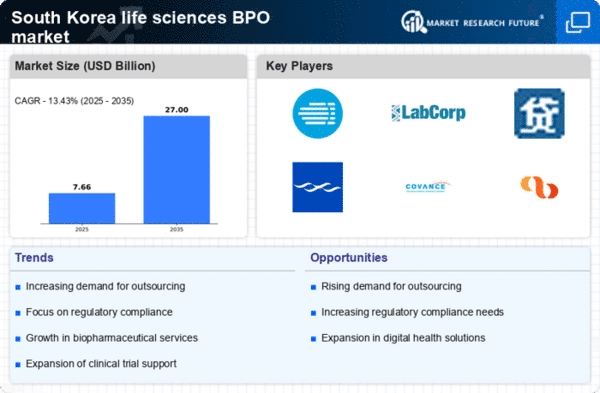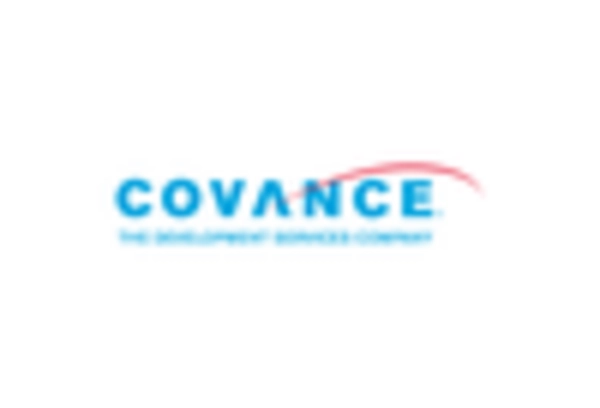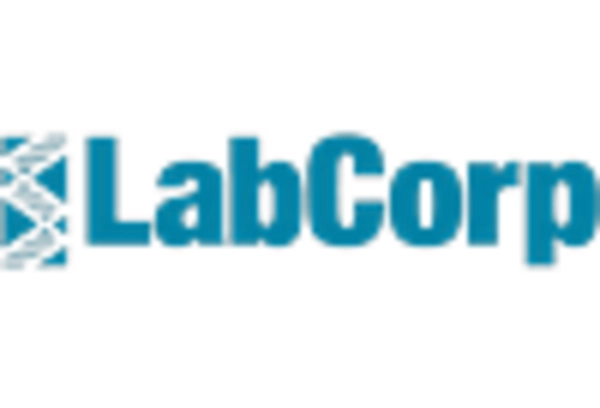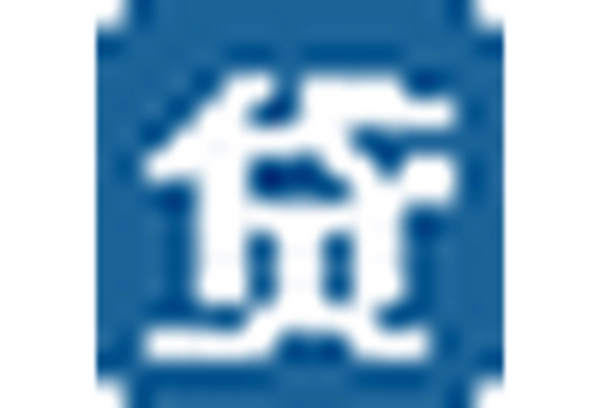Growing Regulatory Complexity
The life sciences-bpo market faces increasing regulatory complexity, which significantly impacts operational strategies. South Korea's regulatory environment is evolving, with stricter guidelines for drug approvals and clinical trials. This complexity necessitates the expertise of BPO providers who can navigate the intricate regulatory landscape. Companies are increasingly outsourcing compliance-related functions to ensure adherence to local and international regulations. As a result, the life sciences-bpo market is expected to expand as organizations seek to mitigate risks associated with regulatory non-compliance. The ability to efficiently manage regulatory submissions and maintain quality standards is becoming a competitive advantage.
Focus on Patient-Centric Solutions
The life sciences-bpo market is witnessing a shift towards patient-centric solutions, driven by the growing emphasis on personalized medicine and patient engagement. South Korean companies are increasingly recognizing the importance of understanding patient needs and preferences in drug development and clinical trials. This focus on patient-centricity is prompting BPO providers to develop tailored services that enhance patient recruitment, retention, and satisfaction. As a result, the life sciences-bpo market is likely to see a surge in demand for services that facilitate patient engagement and improve overall clinical outcomes. This trend reflects a broader movement towards more holistic approaches in healthcare.
Rising Demand for Outsourced Services
The life sciences-bpo market in South Korea experiences a notable increase in demand for outsourced services. This trend is driven by the need for pharmaceutical and biotechnology companies to enhance operational efficiency while focusing on core competencies. As organizations seek to reduce costs and improve service quality, outsourcing non-core functions becomes a strategic priority. In 2025, the market is projected to grow by approximately 15%, reflecting the increasing reliance on third-party service providers. This shift allows companies to leverage specialized expertise and advanced technologies, ultimately leading to improved product development timelines and market responsiveness.
Increased Investment in Research and Development
Investment in research and development (R&D) plays a crucial role in the life sciences-bpo market. South Korea's commitment to innovation is evident, with R&D spending reaching around 4.5% of GDP in recent years. This focus on R&D fosters collaboration between life sciences firms and BPO providers, enhancing the development of new therapies and technologies. As companies seek to accelerate their R&D processes, the demand for BPO services that support clinical trials, data management, and regulatory submissions is likely to rise. This trend not only drives growth in the life sciences-bpo market but also contributes to the overall advancement of the healthcare sector.
Technological Integration and Digital Transformation
Technological integration is a driving force in the life sciences-bpo market, as companies increasingly adopt digital solutions to enhance operational efficiency. The rise of artificial intelligence (AI), big data analytics, and cloud computing is transforming how life sciences organizations manage their processes. In South Korea, the adoption of these technologies is projected to increase by 20% over the next few years. BPO providers that leverage advanced technologies can offer innovative solutions, such as real-time data analysis and automated reporting, which streamline workflows and improve decision-making. This trend indicates a shift towards more agile and responsive business models within the life sciences sector.
















